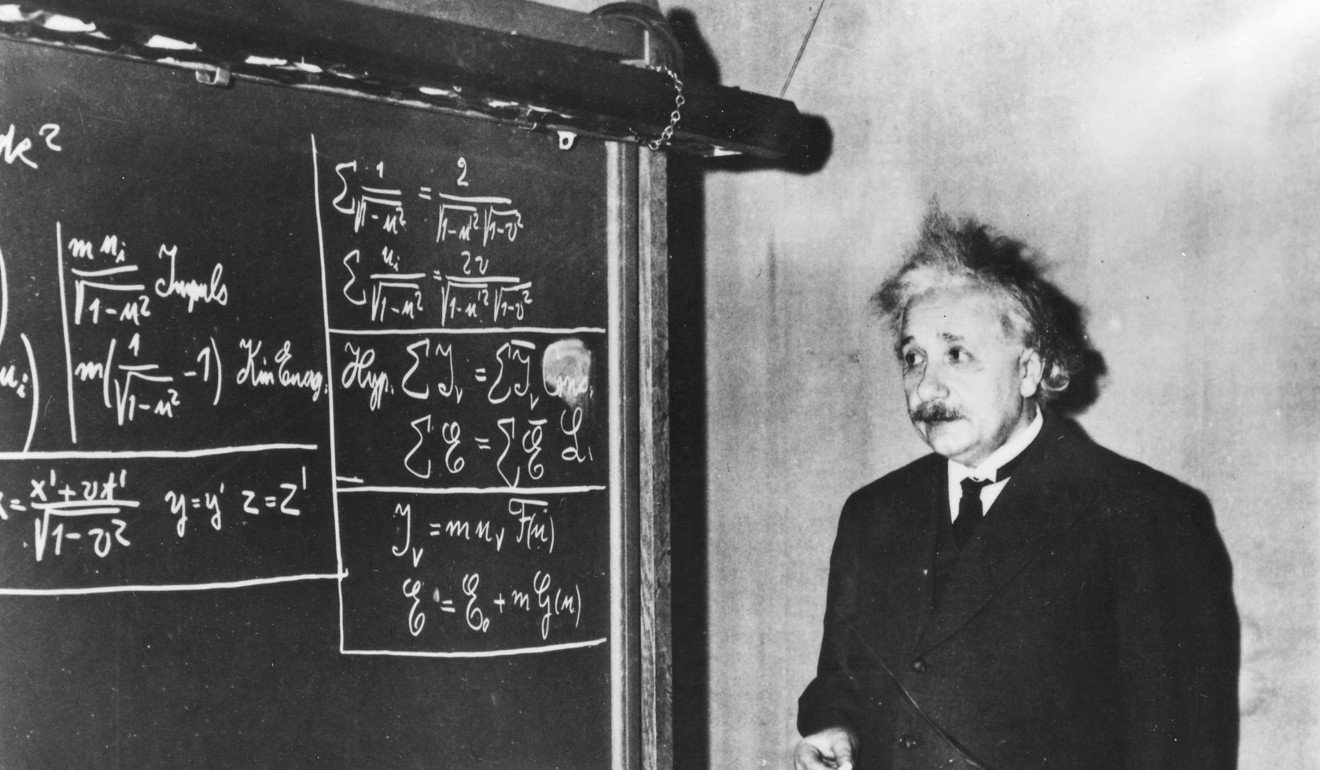
Einstein’s racist views reflect ‘cultural bias’, not bigotry, China’s social media users insist
The father of relativity’s newly published 1920s travel diaries reveal his xenophobic attitudes to the people he met on his travels, particularly the Chinese
Derogatory descriptions of Chinese people in Albert Einstein’s 1920s travel diaries – contradicting his image as a humanitarian icon – reflect “cultural bias” rather than bigotry, according to China’s social media denizens.
Some social media users even said they agreed with the Nobel Prize-winning physicist’s assessments of society given the time in which he was writing – a period of widespread poverty and declining quality of life in China, just a decade after the founding of a republic that ended aeons of dynastic rule.
“Einstein was telling the truth,” one Weibo user commented after reading excerpts from The Travel Diaries of Albert Einstein, published by Princeton University Press.
“But he would not make the same comments if he visited the big Chinese cities today.”
Written between October 1922 and March 1923 during Einstein’s tour of Asia, the diaries – published for the first time as an English-language, standalone volume – reveal the father of relativity’s racist attitudes to the people he met on his travels, particularly the Chinese.
While describing the Chinese people as a threat that could “supplant all other races”, the man who 20 years later famously termed racism “a disease of white people” wondered how Chinese men could find their women sufficiently attractive to have offspring with them.
“Everyone’s point of view is limited by the times,” read the most liked comment on a Weibo post by state-led media Global Times, typifying the internet’s mostly indifferent response to the revelations.
Einstein’s racist opinion of Chinese people brought to light
“[Einstein’s diatribe] does not feel like racial discrimination but cultural bias,” another Weibo user wrote.
One Weibo user named “Winston” also cautioned that Einstein’s xenophobic ruminations should be viewed in the context of his youth – and that he was writing down his thoughts in a journal never meant to be read by the public.

Ze’ev Rosenkranz, who spent months editing the diaries and translating them into English, called the scientist’s disparaging views a “shock” compared with his reputation as a great humanitarian.
“They jumped out at me because of the (occasionally) extreme, unpleasant language that he used,” Rosenkranz told the South China Morning Post in an interview.
But even Einstein’s description of the Chinese he observed as “filthy” and “obtuse” failed to spark much of a reaction on social media in China.
‘Your English is very good’: the casually racist compliment
“When I look at the old photos, I also find them filthy.”
After Einstein fled to the US to escape rising Nazi persecution against his fellow Jews in 1930s Germany, his humanitarian reputation was burnished by his affiliation with non-religious humanist and ethical culture organisations in both the US and Britain.

Rosenkranz, the senior editor and assistant director of the Einstein Papers Project at the California Institute of Technology, said that while Einstein’s diaries reflected the attitudes of the time, his harsh views were nevertheless not universal.
His caustic comments fit with his withering opinion of people he viewed as intellectually inferior, Rosenkranz said.
Vancouver apologises for its racist treatment of Chinese citizens
“When he encountered what he perceived as intellectual inferiority, his empathy and humanism ended. It is in this context that we should consider his disturbing comments on the alleged intellectual inferiority of the Chinese, Japanese and Indians.”
But Einstein’s fear of the Chinese taking over other nations revealed a “darker side” which included “unenlightened views, prejudices and stereotypes on the members of other nations”, Rosenkranz said.

Aurelio Insisa, an honorary assistant professor in Hong Kong University’s history department, said Einstein’s “racist views” – typical of European or Western perspectives in a highly bigoted era –. were “probably fuelled” by “a lack of understanding of the enormous changes of the time”.
“It is known as the Warlord era in China – a period of great chaos, political demonstrations, widespread poverty and constant domestic military strife,” Insisa said.
“It was also a period of intellectual change and innovation. There was a decline in the quality of life and a period of mass migration.”
Exploring the Chinese Exclusion Act, a racist stain on the American dream
While Einstein uses much harsher language in his diaries to describe the Chinese than other nationalities such as the Japanese, his comparisons with Japan “replicate common racist stereotypes that even survive today with casual Western travellers”, according to Insisa.
“Maybe we should take into consideration that he became a refugee in the 1930s,” Insisa said. “He would have experienced first-hand the issues of abuse and racism after he travelled China, and probably changed his attitudes.”
Einstein’s opinions from later periods of his life did in fact show greater tolerance, Rosenkranz said.


